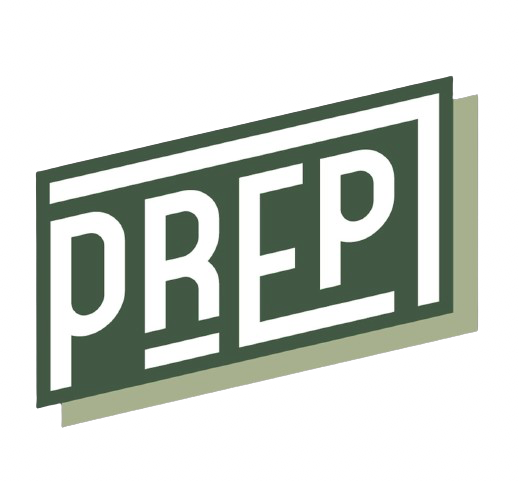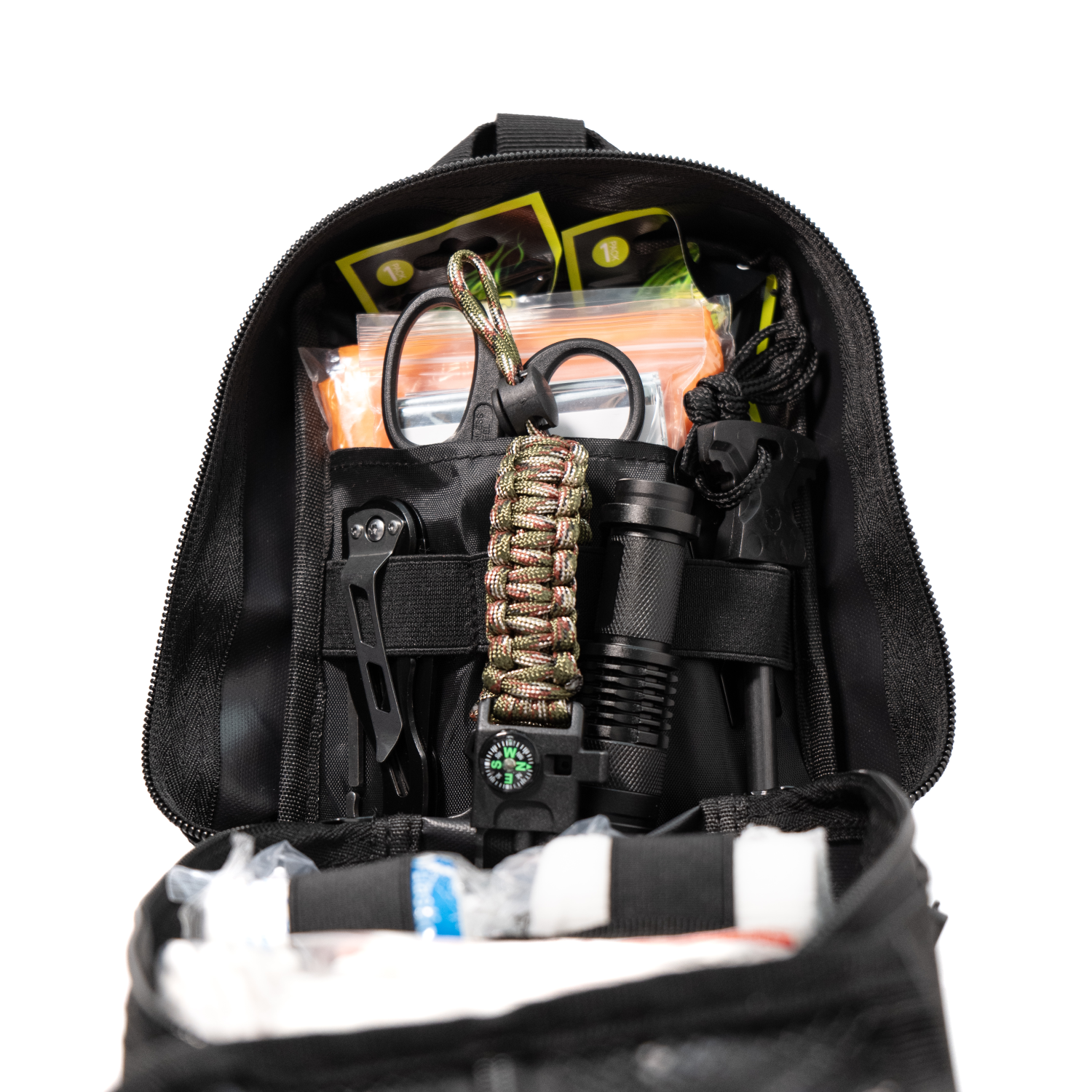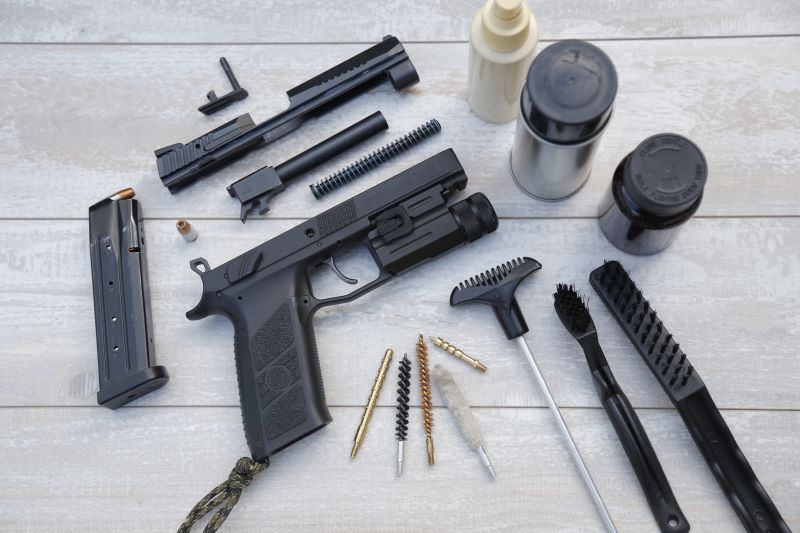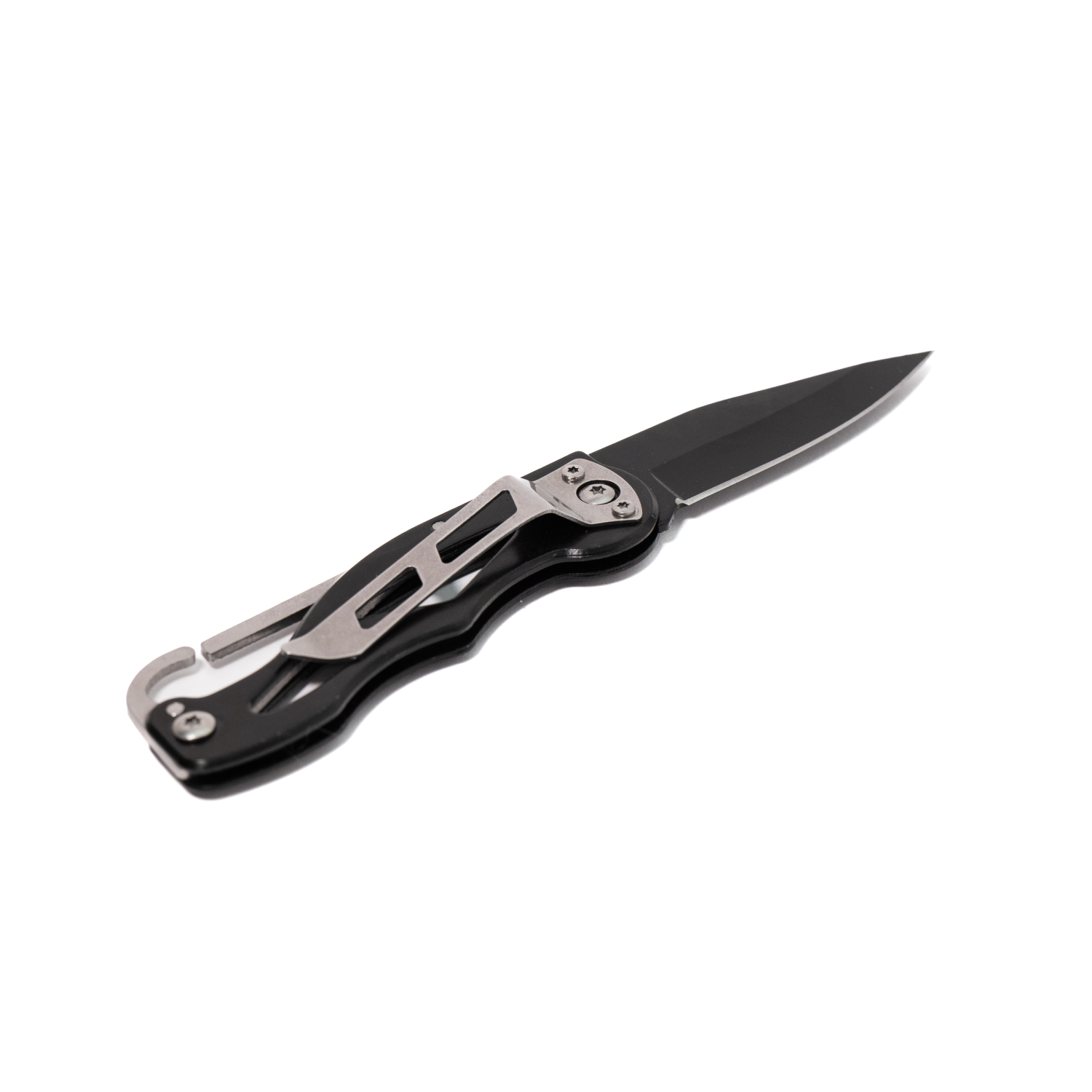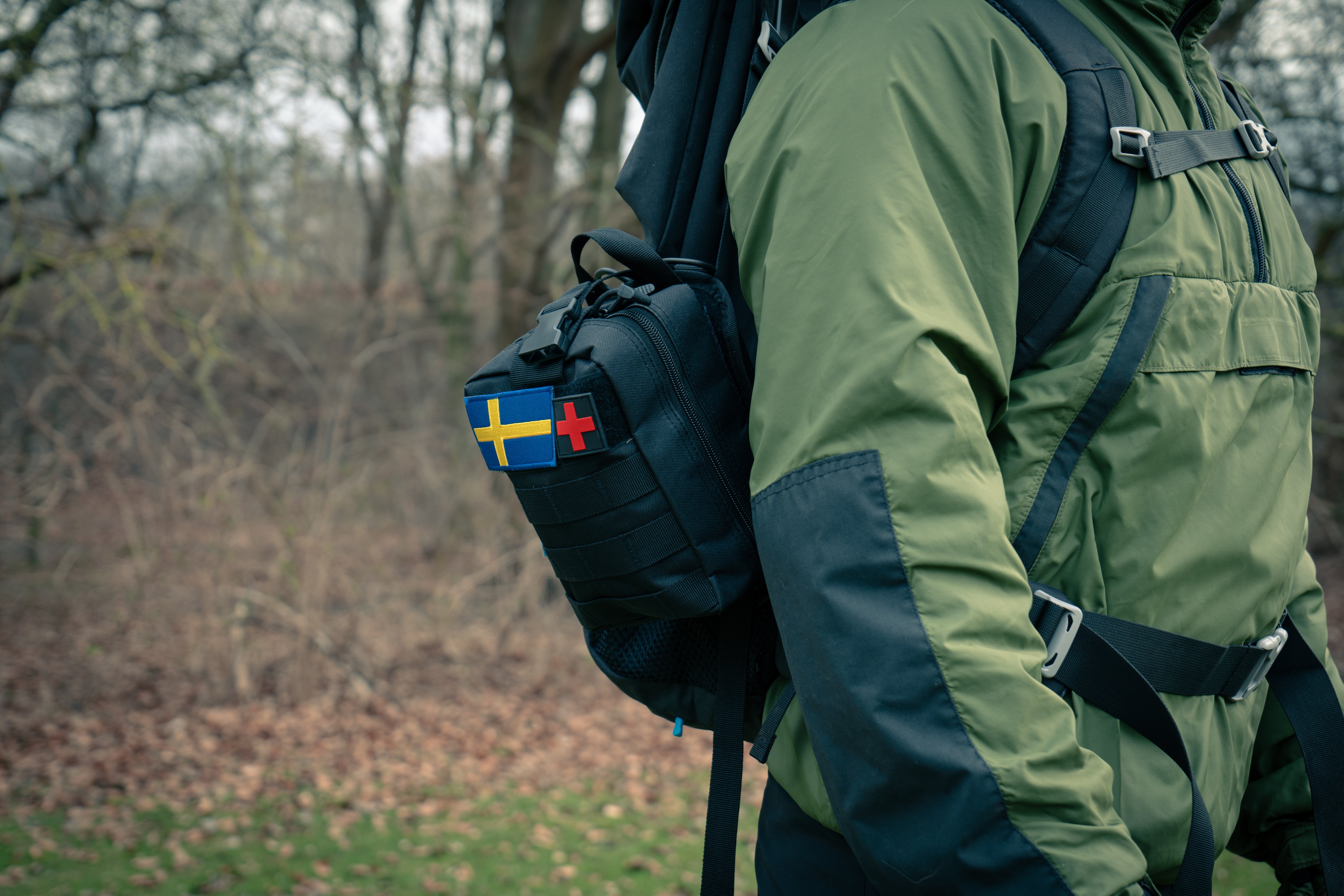Emergency Kits
Jun 28, 2024 | by N Johansson
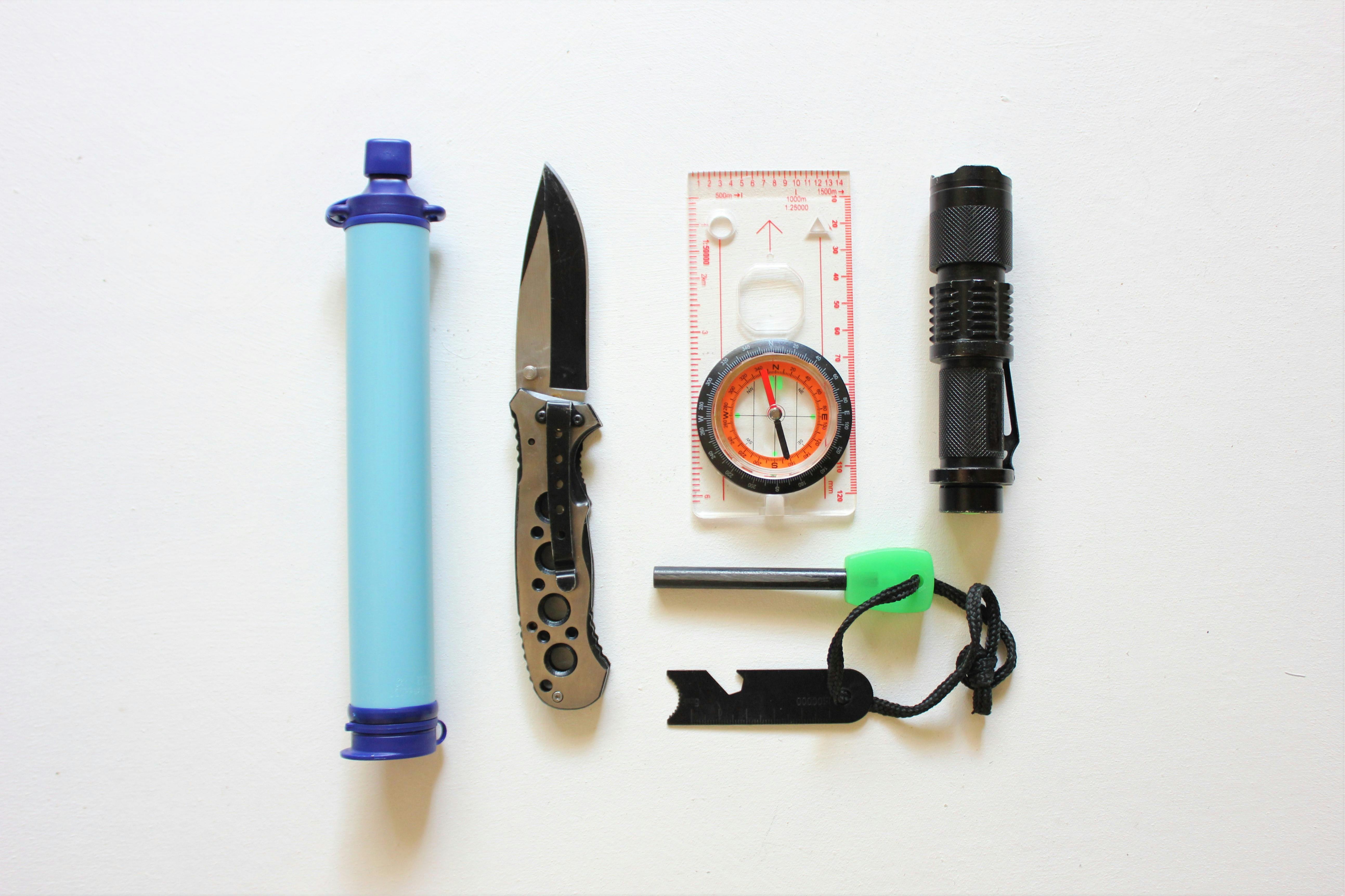
Emergency Kits: An Introduction
Emergencies can strike at any time, leaving us scrambling for supplies. Whether it's a natural disaster, power outage, or medical emergency, being prepared is crucial for our safety and well-being. Emergency kits contain essential items like food, water, and medical supplies to help us survive during crises. In this guide, we’ll explore different types of emergency kits, their contents, and how to choose the right one. Let’s get started on ensuring we are prepared for any emergency.
Why You Need an Emergency Kit
Disasters can strike without warning, leaving limited time to gather supplies. A well-stocked emergency kit ensures you have the essentials ready. It provides the necessities to sustain you until help arrives.
First responders and healthcare professionals may not be readily available during emergencies. An emergency kit allows you to care for yourself and your loved ones until professional help can reach you, reducing stress and providing peace of mind.
No one is immune to disaster. By having an emergency kit, you show you value your household’s well-being and are taking proactive steps to protect them.
Assessing Your Needs
Before assembling your emergency kit, it’s crucial to assess the specific needs of your household. Each family is unique, and your kit should reflect this. Start by considering the size and composition of your household. Think about the number of people and their ages—children, adults, and elderly family members may have different requirements. Additionally, account for any disabilities or special needs, which could include medical equipment, mobility aids, or other specific supplies.
Health and medical requirements are also essential. Ensure you have an ample supply of prescription medications, and don’t forget over-the-counter medicines such as pain relievers, antacids, and allergy medications. If any family member requires specific medical equipment, make sure you have a portable version or backup supplies available. A comprehensive first aid kit tailored to your family’s needs is also crucial.
If you have pets, their needs should be part of your planning. Include a supply of pet food and water, along with any necessary medications. Pack familiar items like toys or blankets to help reduce your pet’s stress during an emergency.
When preparing for potential hazards, consider a comprehensive risk assessment. While natural disasters such as earthquakes, hurricanes, and floods are significant concerns, other hazards might be more relevant to your situation. Assess the likelihood and impact of various scenarios:
Power outages can occur due to severe weather, infrastructure failure, or other crises. Ensure you have backup power sources, such as batteries and generators, and essential items like flashlights, blankets, and non-perishable food.
Pandemics and other disease outbreaks can disrupt daily life. Include hygiene items, prescription medications, and enough food and water to last at least two weeks. Consider entertainment options to help cope with extended isolation.
Sometimes, essential services and infrastructure can be disrupted. This could include water supply issues, transportation disruptions, or communication breakdowns. Ensure you have water purification tools, extra fuel, cash, and a way to stay informed about local conditions.
Consider unique risks relevant to your area or personal circumstances, such as industrial accidents, civil unrest, or severe weather events like blizzards or heatwaves.
Communication and documentation are vital components of your emergency preparedness. Keep a list of emergency contacts, including family members, friends, and local emergency services. Store copies of important documents such as identification, insurance policies, and medical records in a waterproof container to ensure they are protected.
Finally, think about evacuation and shelter plans. Identify and practice evacuation routes from your home, and know where you can find shelters or safe locations during an emergency. Ensure you have reliable transportation and a plan for moving all family members and pets quickly and safely.
By assessing your unique needs and compiling a checklist of essential items, you can create a comprehensive and effective emergency kit. Regularly review and update your kit to keep all supplies current and in good condition. Taking these steps will help ensure your family is well-prepared to face any crisis, regardless of the specific nature of the emergency.
Types of Emergency Kits
Below we will list some areas to where emergency kits can be dedicated:
Basic Emergency Kit
A basic emergency kit should include some of the following:
- Flashlight
- Batteries
- Battery-powered radio
- Power bank
- Non-perishable food
- Bottled water
- Manual can opener
- First aid supplies: bandages, antiseptic wipes, burn ointment, pain relievers
Earthquake Kit
Include an emergency whistle, dust masks, sturdy shoes, gloves, and tools to turn off utilities.
Hurricane Kit
Include a waterproof container for documents, extra clothing, ponchos, emergency blankets, hurricane straps, and a portable generator.
Pandemic Kit
Include prescription medications, hygiene items, entertainment options like books and puzzles, and enough food and water for at least two weeks.
Evacuation Kit
For quick evacuation, keep essential documents, spare keys, cash, a change of clothes, and personal items ready to go.
Specialized Kits
- Car emergency kit: jumper cables, tire repair kit, reflective triangles, blanket, high-energy snacks, water.
- Pet emergency kit: food, water, medications, leash, carrier, photo of your pet.
Tailor your kit to the most likely emergencies in your area and update it regularly to ensure food and medications are not expired and batteries are charged. Plan for special needs like baby supplies or specific medical equipment.
Where to Keep Your Emergency Kit
Home Storage
Store your emergency kit in a designated spot in your home, such as a closet near the front door or under the bed. Consider keeping smaller kits on each floor of your home.
Car Storage
Keep an emergency kit in your car for breakdowns or unexpected events. Use a sturdy backpack or plastic storage container to keep everything organized and check items periodically to ensure they are in good condition.
Office Storage
If space is limited, keep a mini emergency kit in your office or workplace. Store it in a drawer or cupboard where it’s easily accessible but not in the way of daily activities.
Regularly check and replenish your supplies. Set a reminder to review your kit every six months and replace expired items. By keeping your emergency kit in a convenient location, you’ll be ready to handle any unexpected situation.
Special Considerations
When preparing your emergency kit, consider your household’s unique needs. Include baby formula, diapers, and other essential baby supplies if you have infants. Ensure you have enough prescription medications and necessary medical equipment for specific medical conditions. Don’t forget your pets—include their food, water, medications, and comfort items.
Tips for Staying Safe During an Emergency
- Stay Informed: Keep a battery-powered or hand-crank radio to stay updated on the latest news and emergency broadcasts.
- Follow Evacuation Orders: If local authorities advise evacuation, do so promptly and follow the recommended routes.
- Practice Your Plan: Regularly review and practice your emergency plan with all household members to ensure everyone knows what to do.
Conclusion: Be Prepared with the Right Emergency Kit
Having a well-prepared emergency kit is a critical part of any preparedness plan. It ensures you have the necessary supplies to endure a crisis and rely on yourself until help arrives. By assessing your unique needs and regularly updating your kit, you can provide security and peace of mind for yourself and your loved ones. Start building your emergency kit today, and take the first step towards being prepared for whatever life throws your way.
Read more about Emergency Kits
